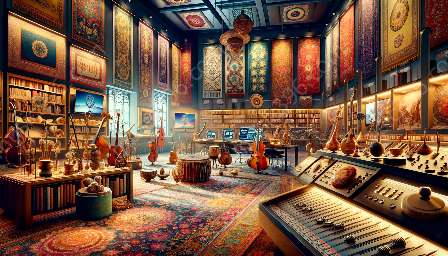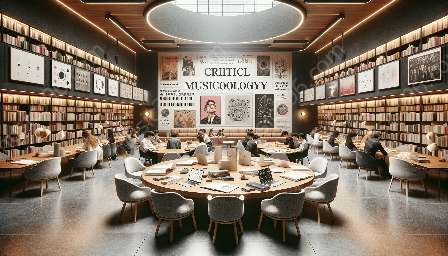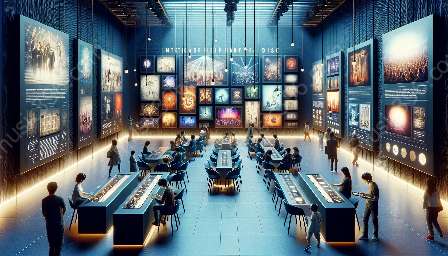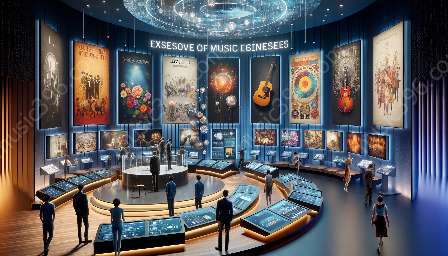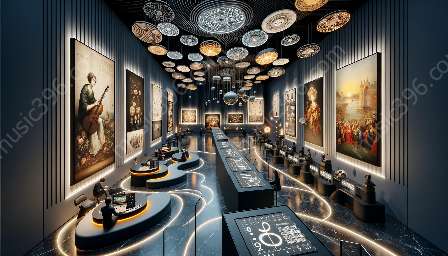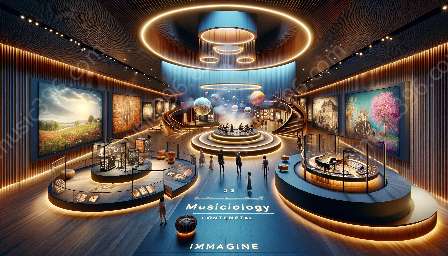Intergenerational dialogue and exchange are crucial for the transfer of knowledge and the preservation of cultural heritage. Music, as a universal language, has the power to transcend generational boundaries, promote understanding, and foster connections between different age groups. In this comprehensive topic cluster, we will delve into the ways in which music facilitates intergenerational dialogue and exchange, drawing insights from critical musicology and musicology to provide a comprehensive understanding of this phenomenon.
Understanding Intergenerational Dialogue and Exchange
Intergenerational dialogue and exchange encompass the sharing of experiences, values, and knowledge across different age groups. It involves the passing down of traditions, customs, and cultural practices from one generation to another. This exchange is essential for preserving cultural heritage and ensuring that valuable insights and wisdom are not lost over time.
The Universal Language of Music
Music, as an art form, has the unique ability to transcend linguistic and cultural barriers. It serves as a vehicle for emotional expression, storytelling, and the communication of ideas. Regardless of age, people from diverse backgrounds can connect through the shared experience of music, making it an ideal medium for fostering intergenerational dialogue.
Music as an Agent of Connection
One of the key ways in which music facilitates intergenerational dialogue is by providing a platform for individuals from different generations to connect and engage with each other. Whether it's through shared musical performances, discussions about musical preferences, or the exploration of historical musical movements, music creates common ground for meaningful interaction.
Historical Context and Intergenerational Connection
Through critical musicology, we can uncover the historical significance of music and its impact on intergenerational connection. By examining the evolution of music genres, the influence of specific artists or movements, and the societal contexts in which music has thrived, we gain insights into how music has shaped generational experiences and identities.
Preserving Legacy and Tradition
Music serves as a medium for preserving cultural legacy and tradition. Older generations can share their musical experiences and traditions with younger individuals, ensuring that valuable cultural practices are passed on. This exchange not only preserves heritage but also fosters a sense of belonging and identity among different age groups.
Enhancing Understanding and Empathy
Through musicology, we can explore the emotional and psychological impact of music on individuals from different generations. The study of musical preferences, emotional responses to music, and the ways in which musical experiences shape personal narratives can deepen our understanding of generational perspectives, enhancing empathy and respect between age groups.
Adapting to Evolving Tastes and Preferences
Music evolves over time, reflecting the changing tastes and preferences of society. By understanding the evolving nature of music, different generations can engage in discussions about contemporary musical trends, innovations, and the ways in which music reflects the shifting cultural landscape. This exchange encourages open-mindedness and a willingness to embrace diversity in musical expression.
Enabling Intergenerational Collaboration
Music provides a platform for intergenerational collaboration, where individuals from different age groups can come together to create, perform, and appreciate music. This collaborative process fosters mentorship, learning, and the exchange of skills and knowledge, creating a rich environment for intergenerational growth and creativity.
Conclusion
Music, with its universal appeal and ability to evoke emotions and memories, plays a vital role in facilitating intergenerational dialogue and exchange. Through critical musicology and musicology perspectives, we gain a deeper appreciation of how music transcends generational boundaries, preserves cultural heritage, and fosters meaningful connections between individuals of all ages. By recognizing the power of music in promoting intergenerational dialogue, we can work towards a more harmonious and inclusive society.

